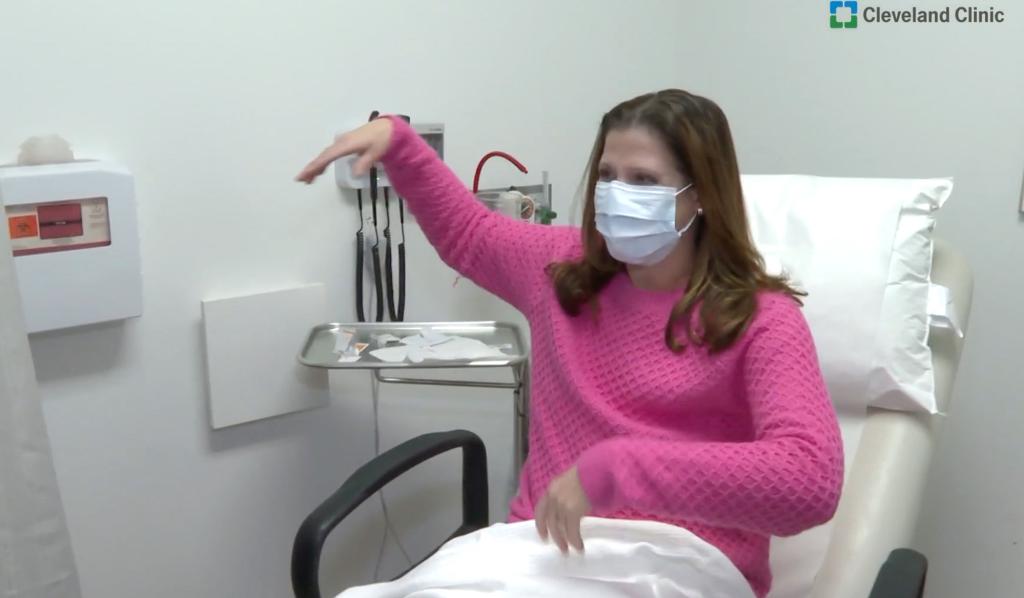
Jennifer Davis, of Ohio, received the breakthrough vaccine, developed by Cleveland Clinic, in October 2021.
She had previously battled triple-negative breast cancer, and went into remission in 2018. She was chosen for the trial as there was a high chance the cancer would return, Mail Online reports.
Davis is awaiting the results of the trial but said the vaccine had brought her peace of mind that the disease could be behind her for good.
“It all fell into place and worked out perfectly,” she told Fox News — though her journey is not over yet.
“I’m very, very excited,” she said. “What I’m waiting to find out, what everybody is looking to see, is whether I built up an immune response to the breast cancer.”
Ms Davis, a nurse from Lisbon, Ohio, around 60 miles North-West of Pittsburgh, found a lump in her breast in February 2018.
Her first biopsy — a test done on tissue removed from a living person to check for a disease — at a local hospital found no evidence of cancer.
But the lump grew over the next few months and Davis had another biopsy after an ultrasound showed abnormalities.
A week later, she was diagnosed with triple-negative breast cancer and underwent several rounds of chemotherapy and radiation, plus a double masectomy — the removal of both breasts.
Triple-negative breast cancer makes up about 10-15 per cent of all breast cancers.
It is called triple negative because the cancer cells do not have estrogen or progesterone receptors and also do not make any or much of the protein named HER2.
Roughly 40 percent of people with stage one to three triple-negative breast cancer will have the disease recur after treatment.
About 91 percent of all women with the disease are still alive five years post-diagnosis. However if the cancer has spread, the five-year survival rate is 12 percent.
Overall, triple-negative breast cancer has worse survival and cause-specific survival than non-triple-negative breast cancer.
During follow-up appointments, she learned about the breast cancer vaccine clinical trial at Cleveland Clinic.
The shot works by targeting a lactation protein called α-lactalbumin, which is no longer present after lactation in non-cancerous tissues but is present in the majority of triple-negative breast cancers. The protein plays a key role in milk production.
If breast cancer occurs, the vaccine triggers the immune system to attack the tumor and stop it from getting any bigger.
Mail Online gathered that Ms Davis was part of phase 1 of the study, which involved patients who completed treatment for early-stage triple-negative breast cancer in the past three years.
These people must be tumor-free but at high risk of recurrence to be included.
She has been given three doses of the vaccine, each two weeks apart. Her last shot was in November 2021, and she has not suffered any major side effects.
Fox News spoke with Dr. Amit Kumar, CEO of Anixa, about the extended journey to bring the vaccine to trial.
Kumar explained that Dr. Vince Tuohy, an immunologist at the Cleveland Clinic, invented the vaccine that’s currently being tested.
The vaccine has been administered to 14 patients so far, Dr. Kumar said.
Next week, at the annual meeting of the American Association of Cancer Research, the research team will present the scientific data for the first group of patients.
“The data is looking very good so far,” the doctor said.




